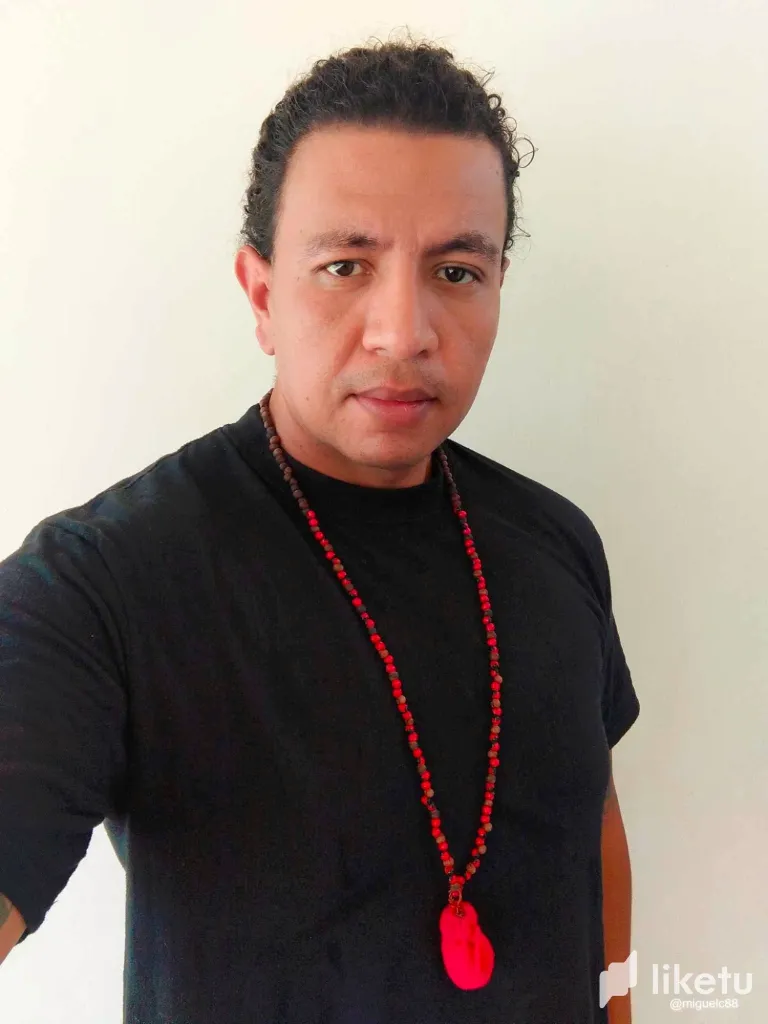
mi collar hecho con semillas de peonía y chaguaramo/My necklace made with seeds of peonía and chaguaramo.
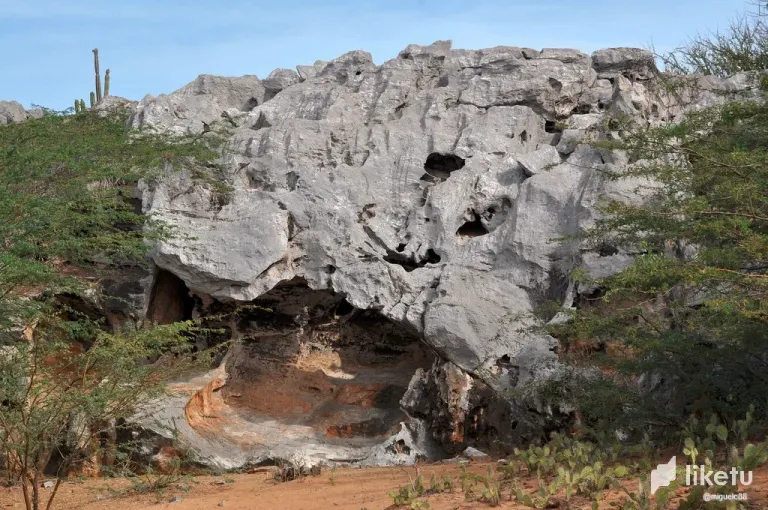
Piedra del destino/Stone of destiny
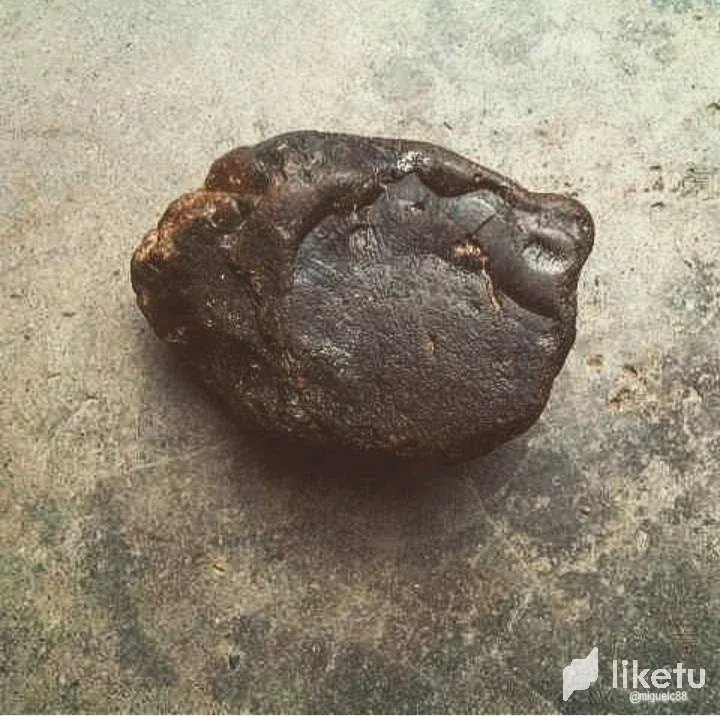
Fragmento recogido en el interior de la piedra/Fragment collected from inside the stone
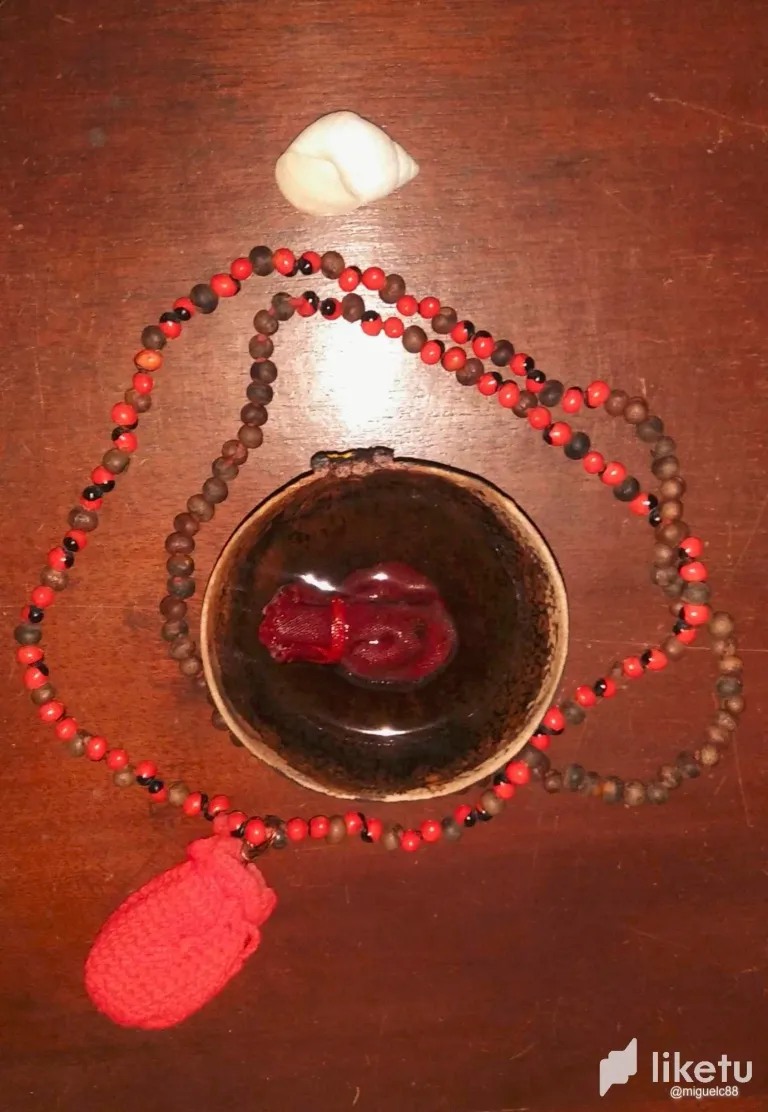
Las 2 mitades de la piedra/The 2 halves of the stone.
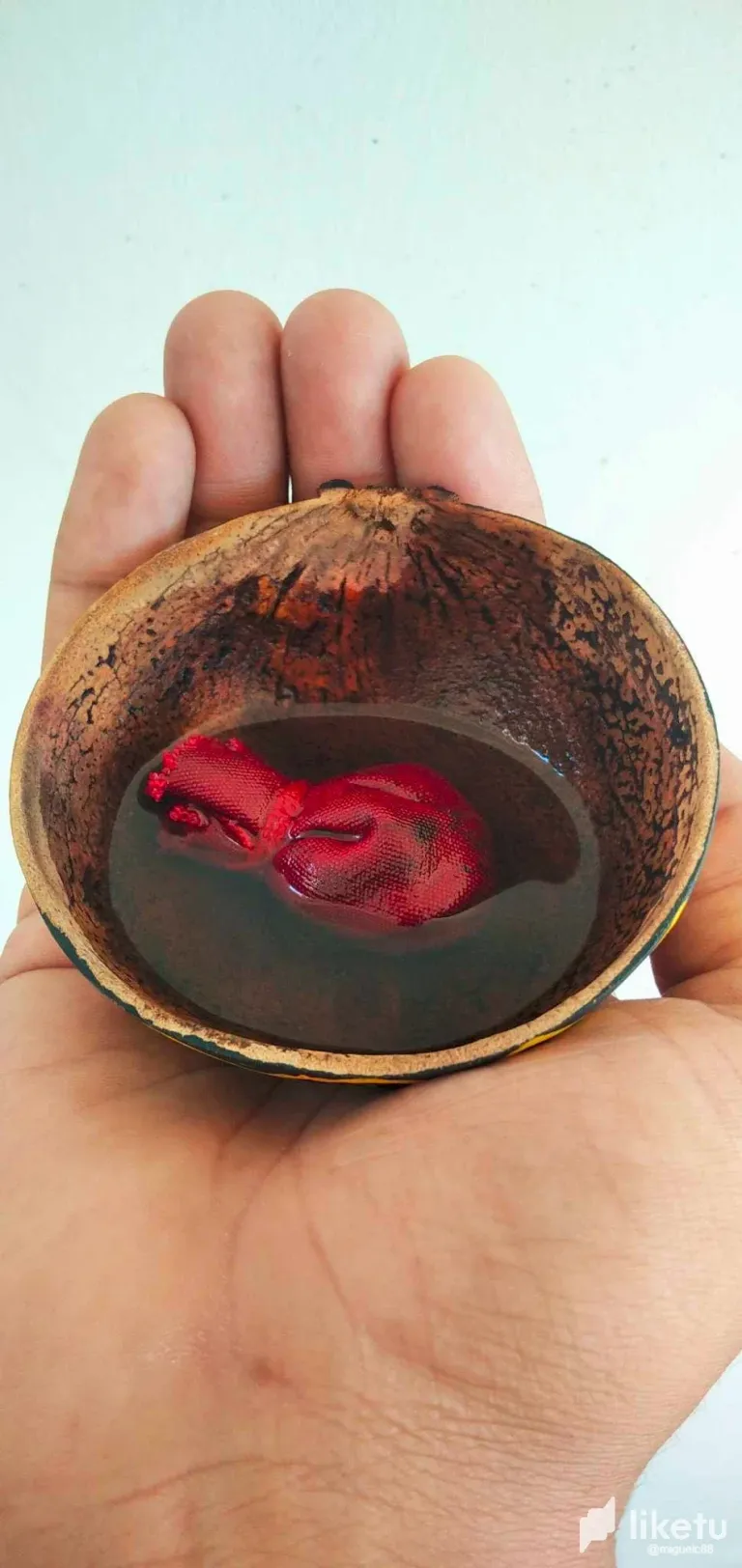
Puesta en ofrenda/offertory offering
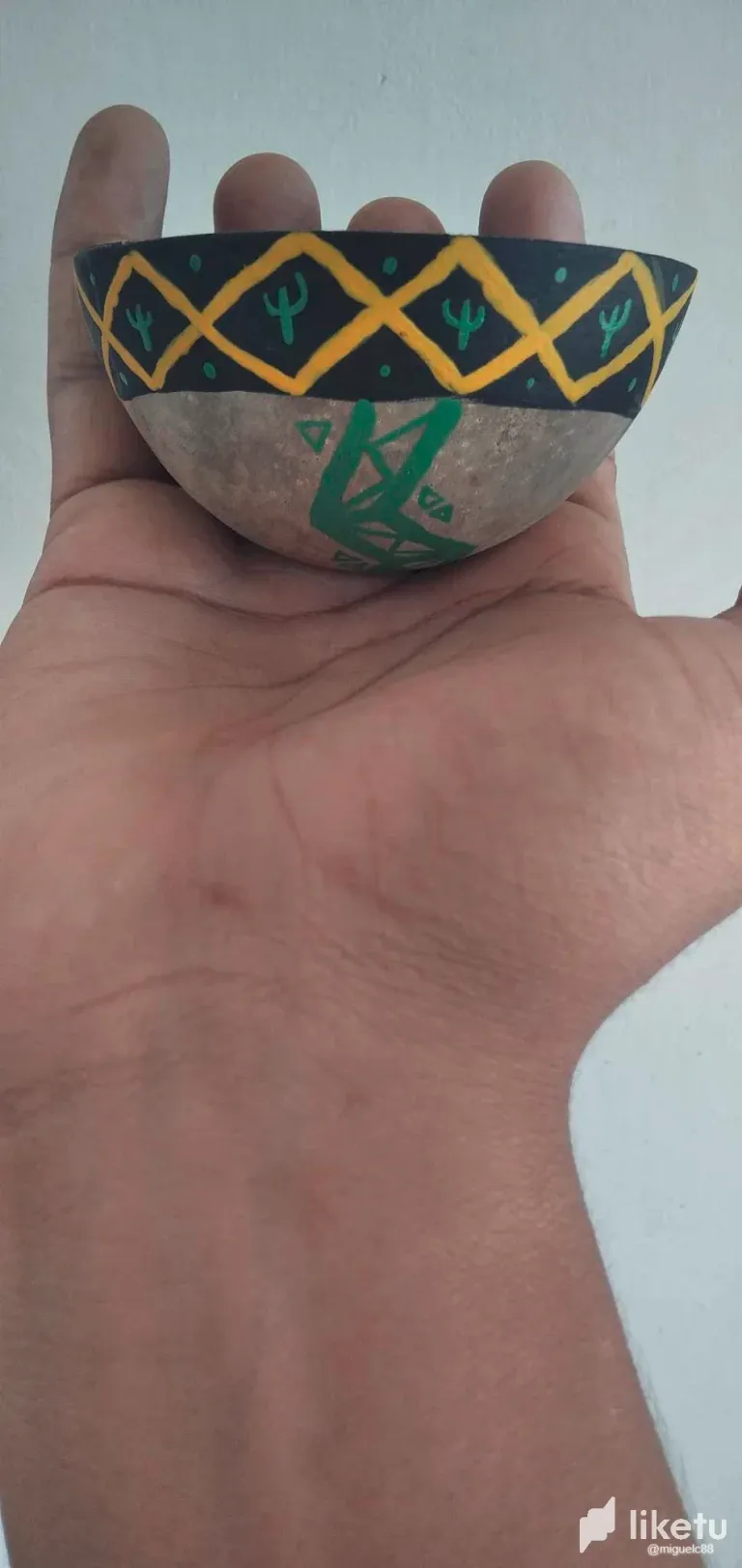
Esta pintura narra el ciclo vida-muerte de la vida vegetal, fue hecha por mí/This painting narrates the life-death cycle of plant life, it was made by me.
La cultura es el patrimonio tangible e intangible de los pueblos en todos los lugares del mundo, el motivo de esta publicación es mostrarles mi collar hecho con un fragmento de la ipaa pulaska o piedra del destino, ubicada en la guajira Colombiana, al norte de ese país, mide cerca de 4 metros de alto por 5 de ancho, los ancianos wayuu (indígenas habitantes entre Colombia y Venezuela) nos cuentan que en esa piedra vivía Pulowi, ella es la madre de toda la naturaleza vegetal y animal, entendiendo que para los wayuu la naturaleza es parte de un ciclo: la lluvia alimenta a las plantas, las plantas a los animales, los animales al humano, cada uno muere y se repite el ciclo. Por tanto la piedra del destino es un lugar donde la vida sale pero también vuelve. Dentro de esta piedra hay pequeños fragmentos esparcidos en el suelo, son de un color negruzco, está la creencia que cada piedra representa un vinculo con nuestros antepasados, debido a esto los wayuu que tienen la oportunidad de entrar a recoger una, la parten por la mitad y en conjunto con semillas de varios árboles se guardan en una tela roja una mitad, la otra mitad también se envuelve en otra tela o tejido de color rojo, el cual uno lleva celosamente, la primera representa la vida de nuestros ancestros, la segunda representa nuestras vidas, por tanto estas piedras no se regalan ni se heredan, a la primera se le suele humedecer con licor, agua o café como ofrenda para los wayuu muertos que siguen con nosotros esperando su segunda muerte. Como dato extra, las personas que visitan la piedra pueden entrar a la misma ya que tiene un orificio de entrada y uno de salida, se dice que si logras ingresar y salir sin problemas tendrás una vida larga, por el contrario tu vida será corta.
¿Te pareció curioso? Déjame saberlo en los comentarios ya que me animaría a contar en una próxima ocasión por qué los wayuu mueren 2 veces. Espero haya sido de su agrado.
Culture is the tangible and intangible heritage of people everywhere in the world, the reason for this publication is to show you my necklace made with a fragment of the ipaa pulaska or stone of destiny, located in the Colombian guajira, north of that country, measures about 4 meters high by 5 wide, the elders wayuu (indigenous inhabitants between Colombia and Venezuela) tell us that in that stone lived Pulowi, she is the mother of all plant and animal nature, understanding that for the wayuu nature is part of a cycle: the rain feeds the plants, the plants feed the animals, the animals feed the humans, each one dies and the cycle repeats itself. Therefore the stone of destiny is a place where life goes out but also returns. Inside this stone there are small fragments scattered on the ground, they are of a blackish color, there is the belief that each stone represents a link with our ancestors, because of this the Wayuu who have the opportunity to enter to collect one, split it in half and together with seeds of various trees are kept in a red cloth one half, The first one represents the life of our ancestors, the second one represents our lives, therefore these stones are not given away or inherited, the first one is usually moistened with liquor, water or coffee as an offering for the dead Wayuu who are still with us waiting for their second death. As an extra fact, people who visit the stone can enter it since it has an entrance and an exit hole, it is said that if you manage to enter and exit without problems you will have a long life, on the contrary, your life will be short.Did you find it curious? Let me know in the comments because I would like to tell you in the next time why the Wayuu die twice. I hope you liked it
For the best experience view this post on Liketu
Congratulations @miguelc88! You have completed the following achievement on the Hive blockchain And have been rewarded with New badge(s)
<table><tr><td><img src="https://images.hive.blog/60x70/http://hivebuzz.me/@miguelc88/upvotes.png?202401110100" /><td>You distributed more than 50 upvotes.<br />Your next target is to reach 100 upvotes. <p dir="auto"><sub><em>You can view your badges on <a href="https://hivebuzz.me/@miguelc88" target="_blank" rel="noreferrer noopener" title="This link will take you away from hive.blog" class="external_link">your board and compare yourself to others in the <a href="https://hivebuzz.me/ranking" target="_blank" rel="noreferrer noopener" title="This link will take you away from hive.blog" class="external_link">Ranking<br /> <sub><em>If you no longer want to receive notifications, reply to this comment with the word <code>STOPHi, thanks for you support.
Es muy interesante la historia de la piedra y el carácter particular de tu collar, me imagino el valor que tienen para cada Wayuu que posee esos dos fragmentos recogidos del lugar. Me gustaría algún día visitar dicha piedra pero creo que no me gustaría saber si mi vida será larga o corta , hay ciertas cosas que es mejor no saber o lo creo de ese modo. Será igual de interesante leer tu próxima publicación con respeto a la muerte. Abrazos 🤗
Tiene un valor cultural enorme, lo que se traduce en otros casos como símbolo de status dentro de la sociedad wayuu.
Que interesante, me quedé con ganas de leer más, estaré atenta a la segunda parte! Feliz noche 💕
Gracias @rossiocando trabajaré en ello.
Me da mucho gusto leer este contenido.
Atento al próximo episodio, muy importante estos temas a través de estos medios . Excelente post profe.💯🔥
Pronto, desde ya trabajando en ello.